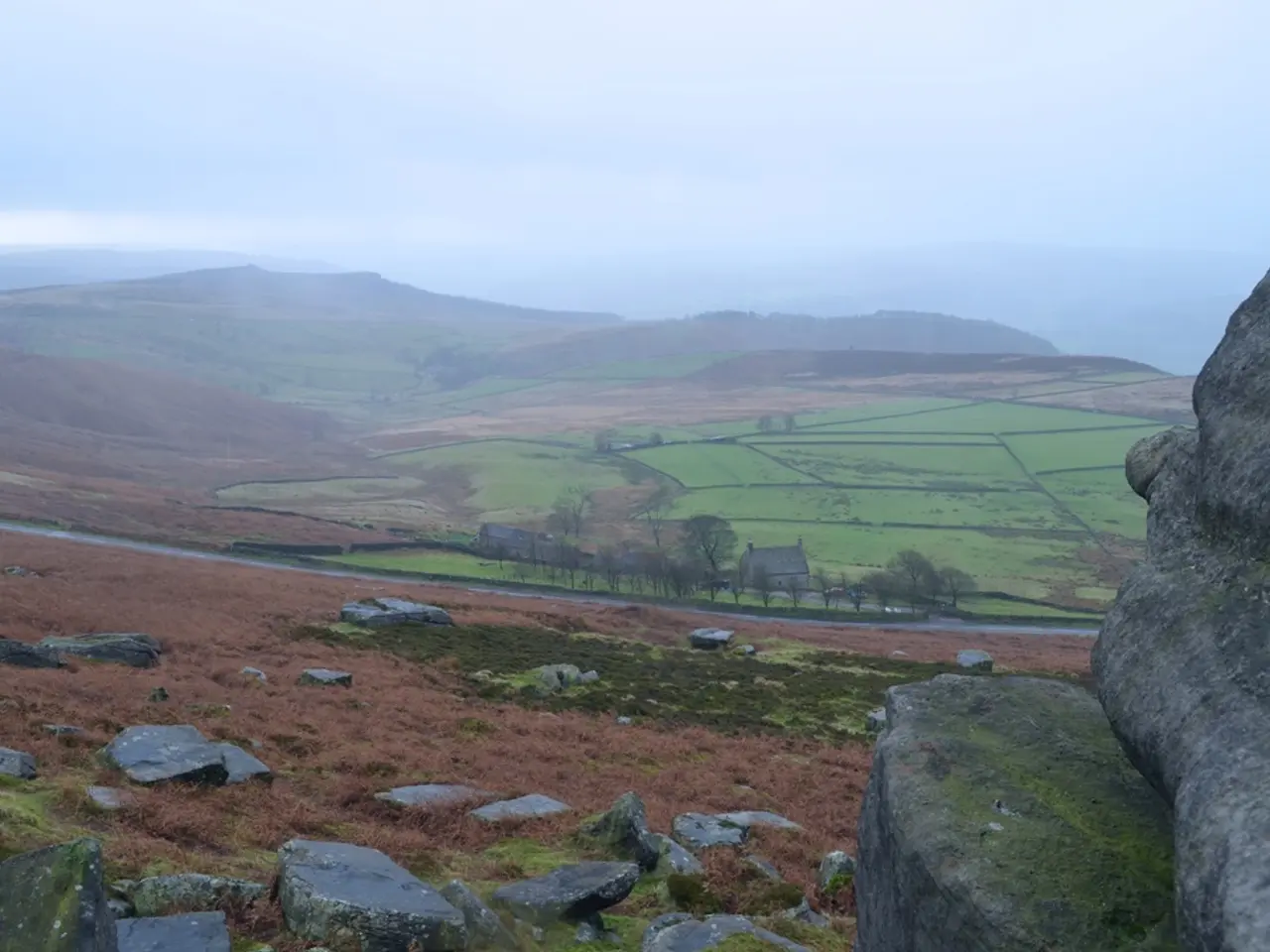Seychelles Unified Entity: In Entirety
The tropical paradise of the Seychelles, known for its unsurpassed aesthetic appeal, is facing a new challenge as pressure builds to allow for more construction. With its pristine beaches and diverse ecosystems, the archipelago is attracting overseas investors to increase tourism revenues, potentially transforming it into another mass tourism destination in a few years.
However, this rapid development comes with its own set of challenges. The natural environment in the Seychelles is amazing, but it is not immune to the effects of climate change. The beaches, a key attraction for tourists, are susceptible to these changes, and new policies have been implemented to address the issue of inappropriately situated tourism development.
One of the most pressing issues in the Seychelles' conservation is the underutilization and legal gaps in protecting crucial ecosystems like seagrass meadows. These ecosystems, covering over 140,000 hectares, store significant carbon but remain underused for economic and conservation financing due to gaps in law, data, and scientific capacity. Seychelles aims to leverage blue carbon markets, environmental levies, and fees linked to seagrass byproducts to generate revenue to support marine conservation.
Invasive species pose a significant threat in the Seychelles, particularly in the UNESCO-listed Vallée de Mai nature reserve, which is critical for biodiversity. Rodent eradication, essential for protecting native island species, faces technical distribution challenges with toxic baits, hampering broader application on tropical islands including Seychelles. Renewed management efforts are underway to address these challenges.
Seychelles demonstrates a multi-faceted conservation approach that addresses habitat protection, invasive species control, and sustainable tourism development. Conservation efforts focus on protecting 100% of seagrass habitats by 2030 as part of Seychelles' Nationally Determined Contributions (NDCs) to the Paris Agreement. Renewed invasive plant control in Vallée de Mai and promoting eco-friendly tourism events like the Seychelles Nature Trail and Seychelles Challenge are part of these efforts.
These events combine outdoor adventure with ecological appreciation, promoting niche ecotourism markets and supporting conservation indirectly by encouraging environmental awareness and local economic diversification. Tourism Seychelles actively integrates sustainability, ensuring that the tourism industry remains sympathetic to the environment, even as it grows.
However, the increasing tourism facilities in the Seychelles sometimes lead to inappropriately placed development, causing erosion. This overseas investment is turning the Seychelles' formerly sustainable small-scale approach to tourism upside down, and problems may become visible in a short time due to this growth.
Despite these challenges, conservation efforts are underway to protect some threatened species in the Seychelles. The Seychelles, with its amazing natural environment and commitment to conservation, continues to strive for a balance between development and preservation.
[1] Seychelles News Agency. (2021, March 1). Seychelles to leverage blue carbon markets, environmental levies to generate revenue for marine conservation. [online] Available at: https://www.seychellesnewsagency.com/articles/seychelles-to-leverage-blue-carbon-markets-environmental-levies-to-generate-revenue-for-marine-conservation-194162
[2] Seychelles News Agency. (2021, February 26). Renewed effort to control invasive plant species in Vallée de Mai. [online] Available at: https://www.seychellesnewsagency.com/articles/renewed-effort-to-control-invasive-plant-species-in-vallee-de-mai-194088
[3] Seychelles News Agency. (2021, February 12). Seychelles Nature Trail and Seychelles Challenge to promote eco-friendly tourism. [online] Available at: https://www.seychellesnewsagency.com/articles/seychelles-nature-trail-and-seychelles-challenge-to-promote-eco-friendly-tourism-193980
[4] Seychelles News Agency. (2021, January 22). Seychelles' sustainable tourism development strategy to be finalised by end of 2021. [online] Available at: https://www.seychellesnewsagency.com/articles/seychelles-sustainable-tourism-development-strategy-to-be-finalised-by-end-of-2021-193806
[5] Seychelles News Agency. (2020, December 11). Rodent eradication on tropical islands faces technical challenges. [online] Available at: https://www.seychellesnewsagency.com/articles/rodent-eradication-on-tropical-islands-faces-technical-challenges-193558
- The Seychelles is attempting to generate revenue for marine conservation by leveraging blue carbon markets, environmental levies, and fees linked to seagrass byproducts.
- Invasive species pose a significant threat to the Seychelles, particularly in the UNESCO-listed Vallée de Mai nature reserve, and renewed management efforts are underway to address distribution challenges with toxic baits.
- Seychelles pitches a multi-faceted conservation approach that focuses on protecting 100% of seagrass habitats by 2030, controlling invasive plant species, and promoting niche ecotourism markets with events like the Seychelles Nature Trail and Seychelles Challenge.
- The increasing tourism facilities in the Seychelles can sometimes lead to inappropriately placed development, causing erosion and turning the Seychelles' formerly sustainable small-scale approach to tourism upside down.
- Tourism Seychelles actively integrates sustainability, ensuring that the tourism industry remains sympathetic to the environment, even as it grows, with the aim of preserving the natural beauty of the Seychelles.
- Climate change is a challenge facing the Seychelles, with its pristine beaches susceptible to the effects, and new policies have been implemented to address inappropriately situated tourism development.
- Despite the transformation of the Seychelles towards mass tourism, conservation efforts are ongoing to protect some threatened species, aiming for a balance between development and preservation of this tropical paradise.




